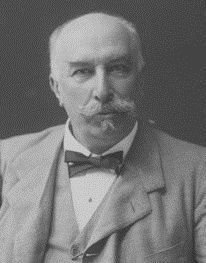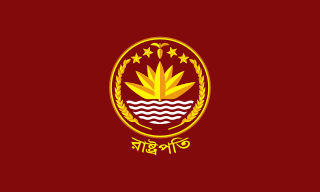
Folketing elections were held in Denmark on 22 April 1918, the first in which women could vote. The result was a victory for Venstre, which won 45 of the 180 seats in the Folketing, which had been expanded from 114 to 140 seats. Voter turnout was 75.5%.

General elections were held in Yugoslavia on 24 September 2000. In the presidential election, official results initially showed Vojislav Koštunica of the Democratic Opposition led incumbent Slobodan Milošević of the Socialist Party of Serbia in the first round of voting, but short of the 50.01 percent needed to avoid a runoff election. However, Koštunica claimed he was not only ahead, but had finished just a few thousand votes over the threshold to win a first-round victory. Spontaneous protests broke out in support of Koštunica, and Milošević was forced to resign on 7 October and concede the presidency to Koštunica. Revised totals were subsequently released showing Koštunica had indeed won a narrow first-round victory, with just over 50.2 percent of the vote.
Parliamentary elections were held in Bulgaria on 13 October 1991. They were the first elections held under the country's first post-communist constitution, which had been promulgated three months earlier.
Elections to the Supreme Soviet were held in the Soviet Union on 12 March 1950.

General elections were held in Italy on 3 June 1900, with a second round of voting on 10 June. The "ministerial" left-wing bloc remained the largest in Parliament, winning 296 of the 508 seats.
Folketing elections were held in Denmark on 20 September 1872. The result was a victory for the United Left, which won 53 seats. Ludvig Holstein-Holsteinborg remained Prime Minister following the elections.
Folketing elections were held in Denmark on 12 October 1866, following the introduction of a new constitution. The National Liberal Party and the National Left emerged as the largest factions, winning 20 seats each. Christian Emil Krag-Juel-Vind-Frijs remained Prime Minister.
Folketing elections were held in Denmark on 4 June 1866. The National Left emerged as the largest faction, winning 30 of the 101 seats. Christian Emil Krag-Juel-Vind-Frijs remained Prime Minister.
Folketing elections were held in Denmark on 7 June 1864. The National Liberal Party emerged as the largest faction, winning 40 of the 101 seats. Following the elections, Christian Albrecht Bluhme became Prime Minister on 7 July.
The first Folketing elections were held in Denmark on 4 December 1849. Adam Wilhelm Moltke remained Prime Minister after the elections.
Folketing elections were held in Denmark on 4 August 1852. Although the National Liberal Party became the largest party, Christian Albrecht Bluhme of the Højre party remained Prime Minister after the elections.
Folketing elections were held in Denmark on 26 February 1853. Christian Albrecht Bluhme of the Højre party remained Prime Minister after the elections, but after the government failed to win a vote on who would succeed King Frederick VII on 18 April by the three-quarters majority necessary, the legislature was dissolved and early elections were held in May.
Folketing elections were held in Denmark on 27 May 1853. Although elections had been held in February, the legislature was dissolved after the government failed to win a vote on who would succeed King Frederick VII on 18 April, resulting in early elections. Anders Sandøe Ørsted remained Prime Minister after the elections.
Folketing elections were held in Denmark on 1 December 1854. Following the elections, Peter Georg Bang became Prime Minister on 12 December.
Folketing elections were held in Denmark on 14 June 1855 in order to approve amendments to the constitution. Peter Georg Bang remained Prime Minister following the elections.
Folketing elections were held in Denmark on 14 June 1858. Carl Christian Hall remained Prime Minister following the elections.
Folketing elections were held in Denmark on 14 June 1861. Carl Christian Hall remained Prime Minister following the elections.
Folketing elections were held in Denmark on 30 May 1865. Christian Albrecht Bluhme remained Prime Minister after the elections, although only until November.
Folketing elections were held in Denmark on 22 September 1869. The Mellem Party and National Liberal Party emerged as the largest factions, both winning 27 seats. Christian Emil Krag-Juel-Vind-Frijs remained Prime Minister.
Folketing elections were held in Denmark on 14 November 1873. The result was a narrow victory for the Højre Coalition, which won 51 of the 101 seats. Ludvig Holstein-Holsteinborg remained Prime Minister following the elections.










